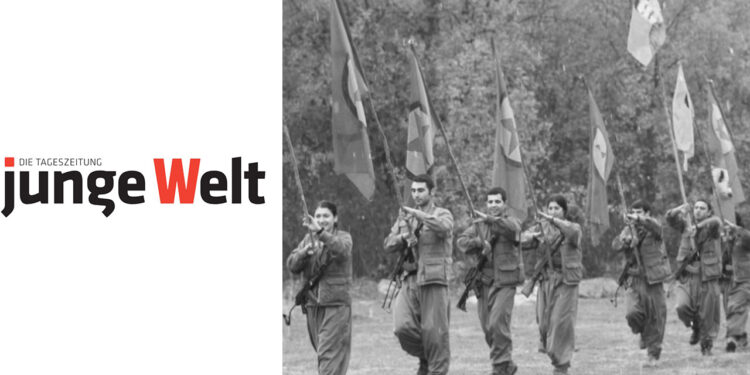In a recent in-depth article by Tim Krüger, published in the German newspaper junge Welt, the complex and turbulent history of the Kurdistan Workers’ Party (PKK) is explored in light of its 40th anniversary. Founded by Abdullah Öcalan in the late 1970s, the PKK has evolved from a small Marxist-Leninist group to a formidable political and military force, challenging the Turkish state for Kurdish independence. The article provides a comprehensive look at how the PKK’s ideological foundation and armed struggle have shaped the political landscape in Turkey and beyond.

Krüger begins by tracing the roots of the Kurdistan Workers’ Party’s (PKK) armed campaign, which started on August 15, 1984, with coordinated attacks on Turkish military installations in the southeastern towns of Eruh (Dîha) and Şemdinli (Şemzînan). The PKK’s early attacks, though limited in military impact, had profound psychological significance. These operations represented a symbolic challenge to the Turkish state’s authority over Kurdish regions and sparked a broader national liberation movement among Kurds, says Krüger.
One of the key elements highlighted in Krüger’s article is the PKK’s ideological bases. Founded as a Marxist-Leninist organization, the PKK viewed the Turkish government as a colonial power suppressing Kurdish identity, language, and culture. Krüger quotes from the PKK’s early statements, such as, “The HRK [Liberation Forces of Kurdistan] pursues the goal of leading our people’s fight for national independence, a democratic society, freedom, and unity under the leadership of the PKK.” This underscores the group’s ambition to dismantle what it saw as “Turkish colonial fascism” and its local Kurdish collaborators.
Throughout the article, Krüger draws attention to the strategic foresight of founder Abdullah Öcalan, particularly his decision to establish training camps in Lebanon’s Bekaa Valley, which became a critical base for the PKK’s military and ideological training. The article delves into Öcalan’s development of guerrilla warfare tactics and his efforts to professionalize the PKK’s fighters. As noted in the piece, Öcalan’s move to Lebanon followed a series of arrests in Turkey, where the organization was losing its cadres “The PKK was the fastest-growing and most dynamic revolutionary movement in Turkey and Kurdistan at that time,” Krüger writes, “but it still lacked a strong mass base and deep-rooted influence in society.”
A particularly interesting aspect of Krüger’s article is the examination of the psychological impact of the PKK’s first armed operations. Citing the PKK’s reference to Frantz Fanon’s ‘Theory of the First Shot’, the article explains that the first act of fight was not just an attack on Turkish forces but also a symbolic gesture of reclaiming Kurdish dignity and humanity. Tim Krüger captures this sentiment well, explaining, “This shot had to be fired because the Kurdish people were threatened with extermination,” quoting Cemîl Bayik, a senior leader of the PKK. This perspective provides a deeper understanding of the motivations behind the PKK’s warfare tactics and its broader ideological framework.
The article also touches on the evolution of the PKK’s goals over the years. Initially seeking full independence for Kurdistan, the group has since shifted its focus to advocating for greater autonomy and political rights within the Turkish state. Krüger notes that the PKK now promotes a concept known as ‘democratic confederalism’, a decentralized system of governance championed by Öcalan from his prison cell under severe isolation conditions in Turkey. Despite this ideological shift, Krüger emphasizes that the PKK remains a remarkable force in the region, even as it continues to be classified as a terrorist organization by Turkey.
In conclusion, Krüger’s article offers an insightful exploration of the PKK’s forty-year challenge to the Turkish state, highlighting the group’s evolution from a small, ideologically driven revolt to a key player in regional geopolitics. This article, which meticulously details the PKK’s struggle for Kurdish rights as well as the destruction caused by the conflict in the region, is a must-read for anyone interested in the history of Kurdish resistance and Middle Eastern politics.









Leave A Comment